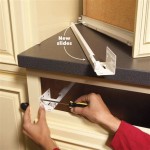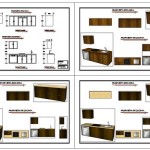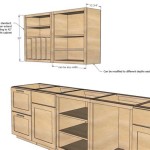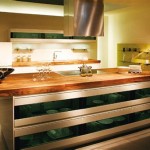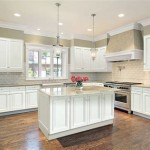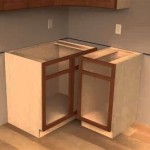Essential Aspects of Moulding Trim for Kitchen Cabinets
Transforming your kitchen's aesthetics and functionality involves paying attention to every detail, including the moulding trim around your cabinets. Moulding adds character, definition, and a touch of elegance while enhancing the overall appeal and practicality of your kitchen. Here are some essential aspects to consider when selecting and installing moulding trim for kitchen cabinets:
Types of Moulding Trim
Choosing the right moulding profile is crucial in achieving your desired kitchen style. Common types include:
* Crown Moulding: A decorative moulding installed along the top of cabinets, adding height and sophistication. * Base Moulding: Installed at the bottom of cabinets, concealing the gap between the cabinetry and the floor, preventing dust and debris accumulation. * Light Rail Moulding: A versatile moulding that can be placed between upper and lower cabinets to create a focal point or enhance visual interest. * Scribing: A technique used to adjust the lower edge of the cabinet to fit uneven walls or floors, ensuring a snug fit.Materials for Moulding Trim
The durability and longevity of your moulding trim depend on the material selected. Here are some common options:
* Wood: Classic and versatile, available in various species and finishes to complement your kitchen decor. * MDF (Medium-Density Fiberboard): A composite material offering cost-effectiveness and a smooth, paintable surface. * PVC (Polyvinyl Chloride): Resistant to moisture and insects, making it ideal for areas prone to spills or humidity.Installation Considerations
Proper installation is essential for both the aesthetic appeal and functionality of your moulding trim:
* Measuring and Cutting: Measure the area precisely and cut the moulding to the exact length using a miter saw or box joint for clean, accurate cuts. * Attaching to Cabinets: Use wood glue and a brad nailer to securely attach the moulding to the cabinet or wall. Ensure a snug fit without any gaps or uneven surfaces. * Finishing: Sand any rough edges and fill in nail holes with wood filler before painting or staining the moulding to match your cabinet finish.Benefits of Moulding Trim
Incorporating moulding trim into your kitchen cabinets offers numerous benefits:
* Enhanced Aesthetics: Moulding adds depth and character, transforming plain cabinets into a stylish focal point that complements your kitchen's overall design. * Improved Functionality: Base moulding conceals gaps and prevents dust accumulation, while light rail moulding creates a convenient and decorative shelf for displaying items. * Protection: Moulding protects cabinets from scratches, dents, or water damage by channeling spills away from the cabinet's surface. * Increased Property Value: Well-installed moulding trim can enhance the overall value of your home by improving its aesthetic appeal and functionality.Conclusion
Moulding trim plays a significant role in the design and functionality of your kitchen cabinets. By selecting the right types, materials, and installation techniques, you can transform the look of your kitchen, enhance its practicality, and safeguard your cabinetry. With careful consideration of the essential aspects outlined above, you can achieve a stunning and enduring result that adds value and beauty to your home.

How To Install Crown Molding On Cabinets Young House Love

Decorative Molding Timberlake Cabinetry

Diy Kitchen Cabinet Upgrade With Paint And Crown Molding

7 Types Of Cabinet Moldings And How To Use Them Properly

Adding Moldings To Your Kitchen Cabinets Remodelando La Casa

Adding Moldings To Your Kitchen Cabinets Remodelando La Casa

11 Kitchen Cabinet Crown Molding Ideas For Your

Consider Molding For Your Kitchen Cabinets Cabinetry In Annapolis Md

Crown Molding For Kitchen Cabinets Fine Homebuilding

Faq Crown Molding For Cabinets Dura Supreme Cabinetry
Related Posts

